Increasing collagen levels is all about providing your body with the necessary tools to create collagen. See, collagen is mainly made up of three amino acids – proline, glycine, and hydroxyproline. In most cases, collagen supplements simply provide you with these amino acids so that your body will make the collagen once they all meet up in the gut and get absorbed.
But, as you may have guessed, most of the time, these amino acids don’t all get fully absorbed, meaning the collagen never ends up getting synthesized.
Outside of taking in these amino acids, however, there are other compounds and nutrients you can consume to both increase the production of collagen even further or enhance the strength and abilities of your newly created collagen.
Here are the top ten ingredients to take if you want effective and plentiful collagen:
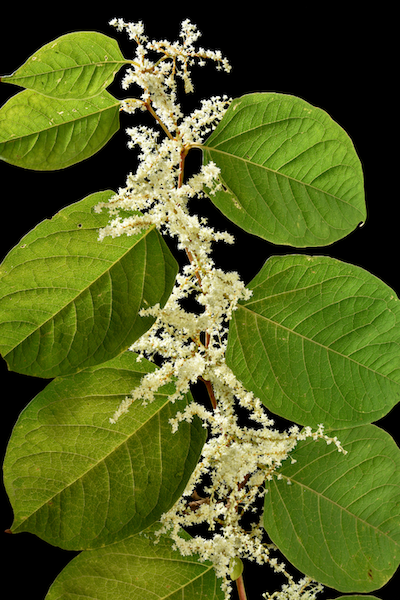
1. Japanese knotweed (resveratrol)
Used traditionally to treat inflammatory conditions like arthritis, Japanese knotweed is a plant that has been found to regulate collagen levels within the joints. This is likely why people with joint issues tend to find relief after taking this plant. [1]
Additionally, Japanese knotweed contains a compound called resveratrol which can enhance collagen production in the body by activating certain receptors. [2]
As such, this compound can protect the skin against UV damage, reduce wrinkles, accelerate wound healing, and more.
2. Grape seeds
Grape seeds may be seen as waste products to the wine and grape juice industry, but for the health of your skin, they’re top-notch.
Grape seeds contain powerful compounds that bond to and protect your collagen from the effects of free radicals and oxidative stress. This allows your collagen to be stronger while staying in the body for longer. This connection between grape seeds and collagen has been shown to protect the body from premature aging. [3]
This bond with collagen has also been shown to have a major impact on bone health. Research has found that adding grape seeds to a healthy diet can increase bone density, mineral content, and bone strength. [4, 5]
Additionally, by strengthening the collagen within your joints, grape seeds have been shown to prevent bone loss and joint damage in those with arthritis. [6, 7, 8, 9]
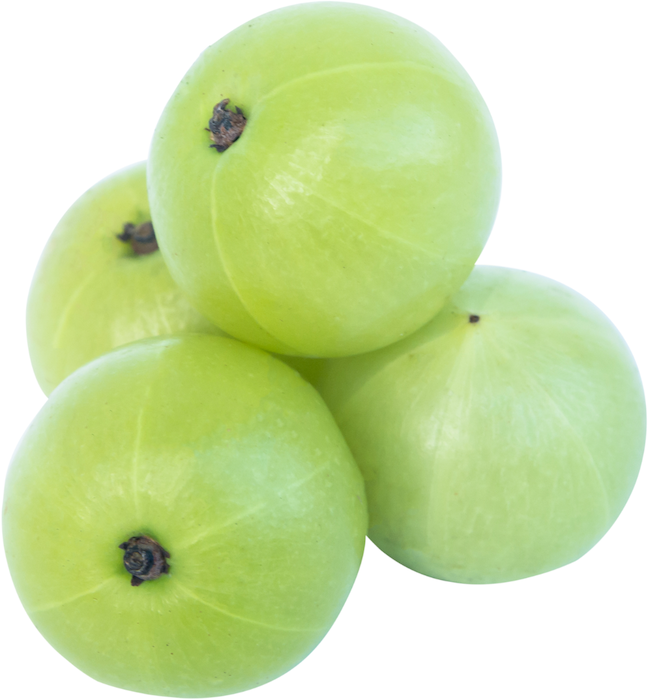
3. Amla fruit
This little green fruit is loaded with antioxidants that protect the collagen within your body from breaking down.
On top of that, research has found that amla fruit actually helps stimulate the production of pro-collagen (a precursor to collagen) – along with other connective tissue cells – allowing for stronger, more collagen-rich skin. [10]
Amla fruit has also been shown to enhance the UV-protection effects of collagen. [11]
4. Glycine, lysine, and proline
Glycine, lysine, and proline are among some of the main amino acids that make up the collagen protein. As such, intake of these amino acids can increase collagen strength and production by providing your body with the tools needed to maintain healthy collagen levels. [12, 13, 14]
5. Beta-carotene
Beta-carotene is the pigment that gives fruits and vegetables like carrots, bell peppers, and papaya their orange-red-yellow colors. But, a powerful antioxidant, this pigment does a lot more than just make our food look good!
Even just 30mg a day of beta-carotene has been shown to “significantly increase” pro-collagen levels, repair photodamage from UV rays, reduce wrinkles, and return the skin’s natural elasticity. [15]
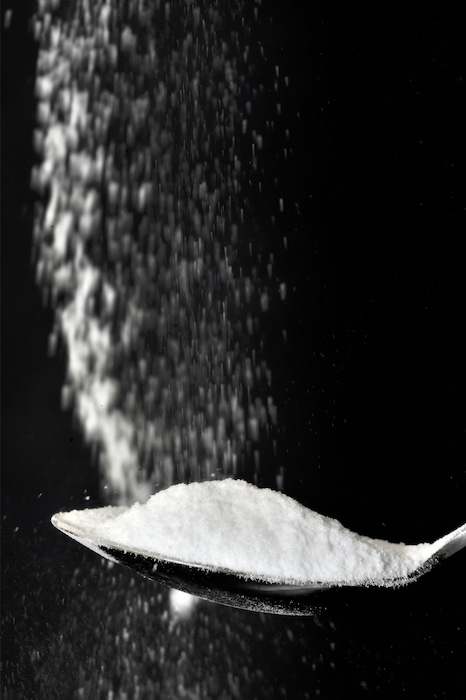
6. Sodium
While too much salt can have negative health effects, healthy levels of salt are not only encouraged, but they’re necessary. One of the many reasons has to do with collagen production.
Research has shown that with the presence of sodium, collagen production was increased in the human body. [16]
7. Zinc
While collagen synthesis requires certain amino acids, the process also relies on several different nutrients – one of which is zinc.
Not only has zinc been found to stimulate collagen production, but it’s also been found to protect collagen levels against harmful effects that would normally strip collagen away. This amazing benefit can allow your collagen to remain in your body when it would have otherwise been destroyed. [17, 18]
If you want healthy collagen levels, it’s important to maintain the amount of zinc in your body as well. Low levels of zinc have been shown to lead to a drop in collagen. [19]
8. Pantothenic acid
Pantothenic acid, also known as vitamin B5, is another one of the vitamins crucial to the development of collagen. This is why a lack of pantothenic acid has been shown to reduce the production of pro-collagen and other crucial connective skin cells. [20]
9. Folate
Folate, another B vitamin (B9), has been shown to boost collagen metabolism, increasing the strength and density of collagen, which, in turn, improves skin firmness. [21]
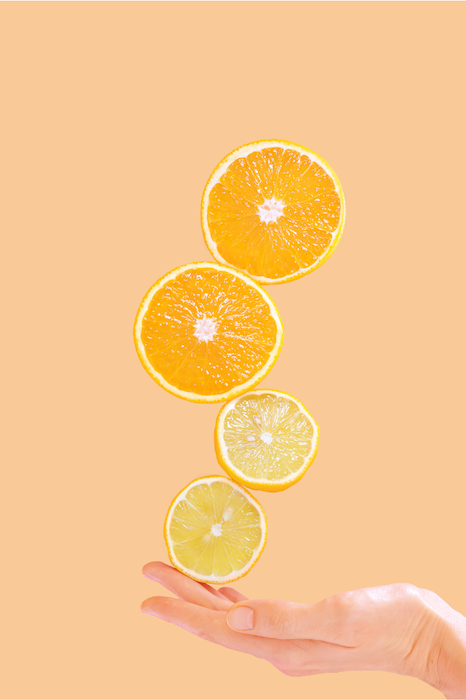
10. Vitamin C
When it comes to nutrients that help with collagen production, vitamin C takes the cake.
It’s well understood and accepted that vitamin C assists the body in the creation of collagen. [22, 23, 24]
In fact, one of the main characteristics of scurvy – the infamous vitamin C deficiency disease often attributed to sailors – is the degradation of the skin and the inability to have wounds heal. This is due to the drastic loss of collagen formation within the skin following a loss of vitamin C. [25]
Vitamin C has also been shown to boost collagen production when needed for the repair of damaged skin following photodamage from the sun’s UV rays. [26]
Additionally, one of the worst lifestyle factors for reducing collagen levels is smoking. Cigarettes drastically lower vitamin C levels, which researchers believe may be one of the main reasons smoking diminishes collagen levels as well. [27]
On top of all of this, vitamin C is one of the most powerful antioxidants you can take in, adding a high level of protection to the collagen all throughout your body.
Be in control of your collagen levels
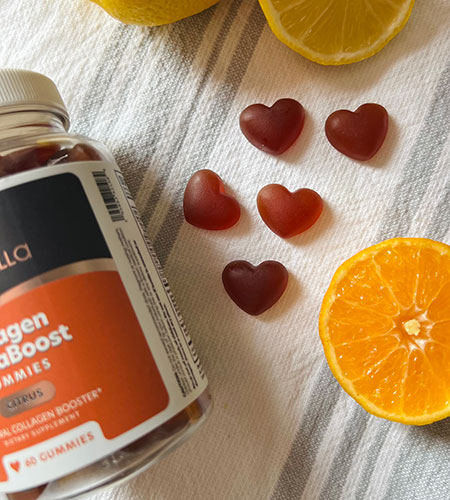
Did you know that every single one of the ingredients we just listed…
They’re all in our sister company’s latest product, Collagen NutraBoost Gummies?!
It’s true!
If you want to be in FULL control of your collagen levels and to have the strongest collagen possible, it’s best to ensure you’re taking in the above ingredients every day. And there’s no better way than with these vegan-friendly gummies that taste like a splash of fresh citrus!
References:
- https://pubmed.ncbi.nlm.nih.gov/26647105/
- https://www.ncbi.nlm.nih.gov/pmc/articles/PMC9326919/
- https://www.sciencedirect.com/topics/biochemistry-genetics-and-molecular-biology/grape-seed-extract
- https://www.ncbi.nlm.nih.gov/pubmed/15693829
- https://www.ncbi.nlm.nih.gov/pubmed/15951633
- https://www.ncbi.nlm.nih.gov/pubmed/23251512
- https://www.ncbi.nlm.nih.gov/pubmed/23759204
- https://www.ncbi.nlm.nih.gov/pubmed/19446580
- https://www.ncbi.nlm.nih.gov/pubmed/19446580
- https://pubmed.ncbi.nlm.nih.gov/18588964/
- https://www.sciencedirect.com/science/article/pii/S1756464612001843
- https://www.ncbi.nlm.nih.gov/pmc/articles/PMC6153947/
- https://pubmed.ncbi.nlm.nih.gov/1904695/
- https://www.ncbi.nlm.nih.gov/pmc/articles/PMC5657141/
- https://pubmed.ncbi.nlm.nih.gov/20516658/
- https://pubmed.ncbi.nlm.nih.gov/6318750/
- https://pubmed.ncbi.nlm.nih.gov/7466582/
- https://analyticalsciencejournals.onlinelibrary.wiley.com/doi/10.1002/jat.3608
- https://pubmed.ncbi.nlm.nih.gov/6252304/
- https://pubmed.ncbi.nlm.nih.gov/32272541/
- https://pubmed.ncbi.nlm.nih.gov/21332911/
- https://www.ncbi.nlm.nih.gov/pmc/articles/PMC6204628/
- https://pubmed.ncbi.nlm.nih.gov/11407971/
- https://pubmed.ncbi.nlm.nih.gov/11896774/
- https://pubmed.ncbi.nlm.nih.gov/14494203/
- https://pubmed.ncbi.nlm.nih.gov/3351329/
- https://pubmed.ncbi.nlm.nih.gov/20347467/
